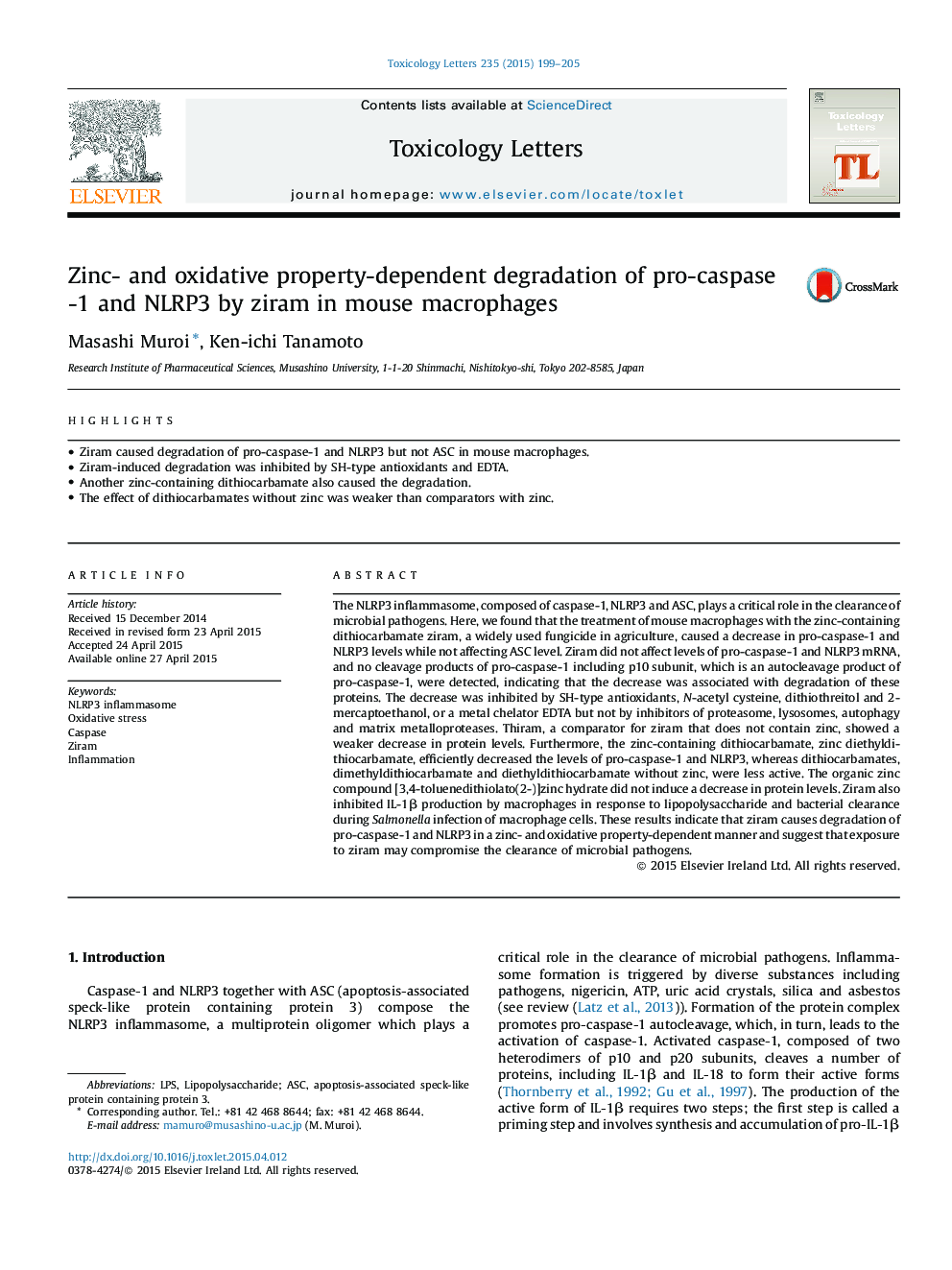| کد مقاله | کد نشریه | سال انتشار | مقاله انگلیسی | نسخه تمام متن |
|---|---|---|---|---|
| 2598836 | 1133152 | 2015 | 7 صفحه PDF | دانلود رایگان |

• Ziram caused degradation of pro-caspase-1 and NLRP3 but not ASC in mouse macrophages.
• Ziram-induced degradation was inhibited by SH-type antioxidants and EDTA.
• Another zinc-containing dithiocarbamate also caused the degradation.
• The effect of dithiocarbamates without zinc was weaker than comparators with zinc.
The NLRP3 inflammasome, composed of caspase-1, NLRP3 and ASC, plays a critical role in the clearance of microbial pathogens. Here, we found that the treatment of mouse macrophages with the zinc-containing dithiocarbamate ziram, a widely used fungicide in agriculture, caused a decrease in pro-caspase-1 and NLRP3 levels while not affecting ASC level. Ziram did not affect levels of pro-caspase-1 and NLRP3 mRNA, and no cleavage products of pro-caspase-1 including p10 subunit, which is an autocleavage product of pro-caspase-1, were detected, indicating that the decrease was associated with degradation of these proteins. The decrease was inhibited by SH-type antioxidants, N-acetyl cysteine, dithiothreitol and 2-mercaptoethanol, or a metal chelator EDTA but not by inhibitors of proteasome, lysosomes, autophagy and matrix metalloproteases. Thiram, a comparator for ziram that does not contain zinc, showed a weaker decrease in protein levels. Furthermore, the zinc-containing dithiocarbamate, zinc diethyldithiocarbamate, efficiently decreased the levels of pro-caspase-1 and NLRP3, whereas dithiocarbamates, dimethyldithiocarbamate and diethyldithiocarbamate without zinc, were less active. The organic zinc compound [3,4-toluenedithiolato(2-)]zinc hydrate did not induce a decrease in protein levels. Ziram also inhibited IL-1β production by macrophages in response to lipopolysaccharide and bacterial clearance during Salmonella infection of macrophage cells. These results indicate that ziram causes degradation of pro-caspase-1 and NLRP3 in a zinc- and oxidative property-dependent manner and suggest that exposure to ziram may compromise the clearance of microbial pathogens.
Journal: Toxicology Letters - Volume 235, Issue 3, 15 June 2015, Pages 199–205